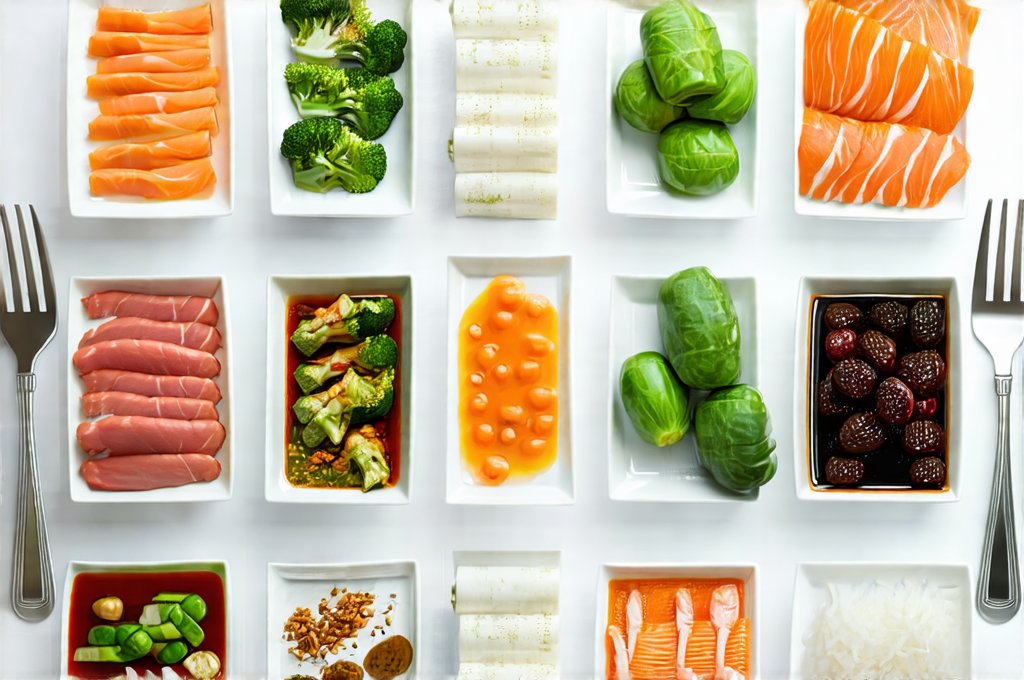Navigating social events and celebrations often involves food, and buffets are a common feature of these gatherings. While enjoying the variety and abundance can be tempting, it’s easy to overindulge in foods that don’t support our digestive health. Many people experience bloating, discomfort, or even worse after buffet-style meals due to the sheer volume and often less-than-ideal food choices available. The good news is that you can enjoy a buffet while prioritizing your gut health – it just requires a little planning and mindful decision-making. Understanding how different foods affect your microbiome and making strategic selections can transform a potentially problematic meal into an enjoyable and nourishing experience, leaving you feeling energized instead of sluggish.
This isn’t about strict dieting or deprivation; it’s about empowering yourself to make informed choices that support your well-being. Focusing on gut-friendly options allows you to participate fully in social events without sacrificing your digestive comfort. By incorporating principles of mindful eating and understanding the connection between food and gut health, you can confidently navigate buffets and other event spreads, savoring delicious food while nurturing a healthy microbiome. It’s about balance – enjoying the celebration and taking care of yourself at the same time. If you struggle with reflux during social events, consider these smart reflux hacks to help manage your symptoms.
Decoding the Buffet: Making Informed Choices
Buffets present a unique challenge because they are designed to be visually appealing and tempting, often overflowing with options that aren’t necessarily the most gut-friendly choices. The sheer variety can lead to overeating and impulsive decisions. A key strategy is to survey the entire buffet before making any selections. Resist the urge to immediately fill your plate with the first things you see; instead, take a moment to assess what’s available and identify the healthier options. Look for foods that are minimally processed and naturally colorful – these often indicate higher nutrient density.
Prioritize lean proteins, such as grilled chicken or fish, which are easier on the digestive system than fried or heavily processed meats. Seek out vegetables and salads (but be mindful of creamy dressings), and choose whole grains over refined carbohydrates whenever possible. Don’t underestimate the power of fermented foods if they’re available – things like kimchi, sauerkraut, or yogurt can contribute beneficial probiotics to your gut microbiome. Remember that portion control is crucial; even healthy foods can cause discomfort if eaten in excessive amounts. Smaller portions allow you to sample a variety without overwhelming your digestive system.
Finally, be aware of hidden ingredients and potential triggers. Many buffet items contain high levels of sugar, unhealthy fats, or artificial additives that can disrupt gut health. Read labels when available, and don’t hesitate to ask about ingredients if you’re unsure. Choosing wisely from the start will significantly reduce the likelihood of digestive distress later on. For those transitioning to a gut-friendly diet, this mindful approach is especially beneficial.
The Power of Pre-Loading & Mindful Eating
Before even approaching the buffet line, consider “pre-loading” with a small, gut-friendly snack. This could be a handful of almonds, a small apple with peanut butter, or a glass of water. Pre-loading helps to curb your appetite and prevents you from arriving at the buffet feeling ravenous, making it easier to make rational choices. It’s also about setting an intention for mindful eating. Before taking any food, ask yourself if you’re truly hungry or simply tempted by the abundance.
Once you begin filling your plate, practice mindful portion control. Use a smaller plate if available – this naturally limits the amount of food you can take. Focus on building a balanced plate with protein, fiber-rich vegetables, and healthy carbohydrates. Chew your food thoroughly before swallowing; this aids digestion and allows your body to better absorb nutrients. Avoid eating quickly or while distracted by conversations. Savor each bite and pay attention to how your body feels as you eat.
Another helpful technique is to avoid the “clean plate” mentality. You don’t need to finish everything on your plate, especially if you start feeling full. Listening to your body’s signals of satiety is essential for preventing overeating and digestive discomfort. Remember that it’s perfectly okay to leave food on your plate – prioritizing your gut health is more important than finishing everything in front of you. If managing nausea is a concern, these tips for eating comfortably can provide helpful guidance.
Hydration & Digestive Support
Staying hydrated throughout the event is crucial for optimal digestion. Water helps move food through the digestive tract and prevents constipation, which can exacerbate bloating and discomfort. Sip water regularly between bites to stay adequately hydrated. Avoid sugary drinks like soda or juice, as these can disrupt gut health and contribute to inflammation. Herbal teas, such as ginger or peppermint tea, can also aid digestion and soothe the stomach.
Consider incorporating digestive enzymes before or during the meal if you are particularly sensitive to certain foods or prone to digestive issues. These enzymes help break down food more efficiently, reducing the risk of bloating and discomfort. However, it’s important to consult with a healthcare professional before taking any supplements. Individuals with sedentary lifestyles might also benefit from these anti-nausea eating habits.
Navigating Common Buffet Traps
Buffets often feature tempting but gut-unfriendly options like fried foods, creamy sauces, processed meats, and sugary desserts. Be mindful of these traps and choose healthier alternatives whenever possible. For example, opt for grilled or baked chicken instead of fried wings, and request a salad with olive oil and vinegar instead of a creamy dressing.
If you do indulge in a less-than-ideal item, balance it out with plenty of fiber-rich vegetables to help mitigate the digestive impact. Don’t feel guilty about enjoying a small treat – the key is moderation. Remember that a single indulgence won’t derail your gut health; it’s the overall pattern of eating that matters most. And remember these safe holiday eating tips to stay on track, even during celebrations!
Post-Buffet Recovery & Reflection
After enjoying the buffet, take some time to reflect on how you felt during and after the meal. Did you experience any digestive discomfort? What choices did you make that worked well for you? What could you do differently next time? This self-assessment will help you refine your strategy and make even better choices in the future.
Light physical activity, such as a short walk, can also aid digestion and reduce bloating after a meal. Avoid lying down immediately after eating, as this can worsen digestive symptoms. Prioritizing rest and relaxation is also important for overall well-being. By learning from each experience, you can confidently navigate buffets and other events while prioritizing your gut health and enjoying the social aspects of life. If you often struggle with indigestion when eating out, these tips for eating out can be incredibly helpful.


















